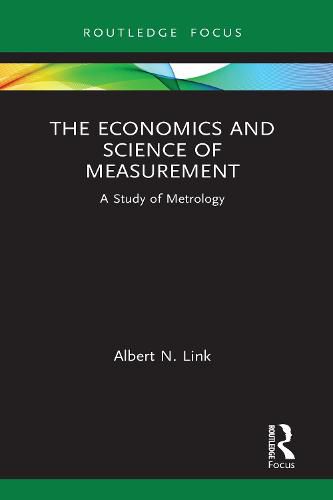Readings Newsletter
Become a Readings Member to make your shopping experience even easier.
Sign in or sign up for free!
You’re not far away from qualifying for FREE standard shipping within Australia
You’ve qualified for FREE standard shipping within Australia
The cart is loading…






Metrology is the study of measurement science. Although classical economists have emphasized the importance of measurement per se, the majority of economics-based writings on the topic have taken the form of government reports related to the activities of specific national metrology laboratories. This book is the first systematic study of measurement activity at a national metrology laboratory, and the laboratory studied is the U.S. National Institute of Standards and Technology (NIST) within the U.S. Department of Commerce.
The primary objective of the book is to emphasize for academic and policy audiences the economic importance of measurement not only as an area of study but also as a tool for sustaining technological advancement as an element of economic growth. Toward this goal, the book offers an overview of the economic benefits and consequences of measurement standards; an argument for public sector support of measurement standards; a historical perspective of the measurement activities at NIST; an empirical analysis of one particular measurement activity at NIST, namely calibration testing; and a roadmap for future research on the economics of metrology.
$9.00 standard shipping within Australia
FREE standard shipping within Australia for orders over $100.00
Express & International shipping calculated at checkout
Metrology is the study of measurement science. Although classical economists have emphasized the importance of measurement per se, the majority of economics-based writings on the topic have taken the form of government reports related to the activities of specific national metrology laboratories. This book is the first systematic study of measurement activity at a national metrology laboratory, and the laboratory studied is the U.S. National Institute of Standards and Technology (NIST) within the U.S. Department of Commerce.
The primary objective of the book is to emphasize for academic and policy audiences the economic importance of measurement not only as an area of study but also as a tool for sustaining technological advancement as an element of economic growth. Toward this goal, the book offers an overview of the economic benefits and consequences of measurement standards; an argument for public sector support of measurement standards; a historical perspective of the measurement activities at NIST; an empirical analysis of one particular measurement activity at NIST, namely calibration testing; and a roadmap for future research on the economics of metrology.